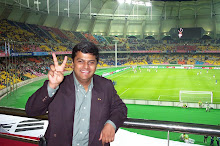Either those who live far away from Human civilization or those who have not been onto any social media platforms (which is a very rare phenomenon these days) have not heard of Wordle or its cousins. Every Whatsapp group is filled with colored squares in various orders. For those uninitiated, these are scores (attempts in which people guess the words). Wordle is a browser-based word guessing game that has taken all the nations by storm recently, gaining so much popularity that it was recently bought out by The New York Times Wordle is a daily word created by Josh Wardle, a Brooklyn-based software engineer. Every day, the people of the internet are greeted with a fresh word puzzle that can only be solved (or not) using a series of process-of-elimination clues. The popularity of the game has led to countless copycats appearing online. In Lewdle, fans must figure out a different swear word. Likewise, Lordle tasks users with figuring out a five-letter word that appears within the Lord of the Rings trilogy. The aim of Heardle is to identify a song as quickly as possible, Emotle is Wordle with emojis, Who Are Ya is a football-based quiz, and Framed is all about the movies. Elsewhere, Quordle is a hardcore variant of Wordle, where you'll need to identify four words instead of one, and Nerdle is a maths-based puzzle in which you must find an equation. On the face of it, it’s a good pastime for those who like words or those who would like to improve their vocabulary. So long as people play and do not bother others with your scores I am fine with that but I simply cannot comprehend the mindset. I know the gaming industry is big and thrives on competitive human spirit but what’s there to compete here. Anyways I am one of those two categories of people who hate Wordle against those who love it. The world is divided into these two kinds of people.
But some psychologist has reasoned out people in my category: People who hate Wordle. They say that it is inevitable that some people will hate things that become popular. They note that social media heightens the feeling of being on an opposing side of something. They also say that we as humans are more prejudiced against people who aren’t in the same “group” as us, meaning that “people are also carving out a stronger affiliation to their group by attacking the popular group. While some hate it because they don’t want themselves to be in the ‘late adopter” category. The deep chasm that divides early adopters of a new technology/trend/application/product from late adopters will further alienate those who hate to be termed as late adopters. Psychologists say “ Wordle players (Wordlers) having conversations, sharing scores and joy, and that can annoy people who consider these things to be frivolous or believe intrinsically that we do not deserve any joy right now. How dare you laugh and share something that I cannot be part of? They choose to refuse to be part of it because somehow, they consider it beneath them. Or it could be that this is the natural way to organize ourselves – in hierarchies – as we have always done, throughout history”
Yes, World of Wordle works similarly to the current state of the World. Just as Wordle world is divided into the hierarchy of those who are pro and those who are against anything that constitutes an ideology. Polarization in the world has already affected many countries and continents. Severe polarization damages all institutions essential to democracy: Judiciary, Executive, legislation, Press, and Social media. It hampers dialogue. It creates demagogues. Perhaps most fundamentally, polarization shatters informal but crucial norms of tolerance and moderation—like conceding peacefully after an electoral defeat—that keep political competition within bounds. Polarization also reverberates throughout society as a whole, poisoning everyday interactions and relationships.
Just as we tried to rationalize the causes and thought processes of Wordle haters and try to rationalize voyeurism, competitive spirit, and show off tendencies of those who are fans of Wordle, we need to find causes of Polarization in every society. The first cause is Political Party Polarization. The adoption of more ideologically distinct positions by political parties can cause polarization among both elites and the electorate. Then there is Public Polarization: Religious, ethnic, and other cultural divides within the public have often influenced the emergence of polarization. Economic inequality can also motivate the polarization of the public. Each country has its own historical issues: ancient, medieval, colonial, and modern (say after the 18th Century). Thus we cannot generalize that the right wing is responsible for extreme positions while absolving the liberals and woke for their extreme positions. In India, we had plunderers and tyrannical rulers ruling us, who were replaced by British Colonists. The colonized past was followed by license raj governments with closed mindsets towards progress and a free economy, the opportunities until liberalization were very far and few. Only those with privileges had an access to all the welfare designed by the elites. It changed after liberalization; there were more opportunities for many beyond those privileged classes. Privileged classes who controlled opinions had lost relevance. Social media was more democratic. The ecosystem of the privileged class was challenged. And the old empire had to find ways to challenge the challengers. And term polarization was itself used as a bugbear to challenge the outsiders who found the imagination of assertive India democratically. So it’s a peculiar situation in India that Rise of Polarization was used to Polarize us further. And this depiction was picked up by International Media to put assertive India in the wrong light.
It's natural for people in civil society to have extreme opinions. Just as we the world haters accept our friends who love Wordle in a social media group bound by the cause for which the group was formed, we should accept those contrary opinions in the real world. It's Very Simple!



No comments:
Post a Comment